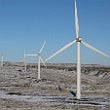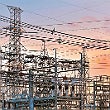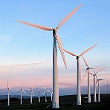
Japan’s Ohi nuclear plant reopens amid protests

Japan restarted the Kansai Electric Power Company-operated Ohi nuclear plant for the first time on 2 July after it was shutdown for safety checks following the Fukushima disaster.
Workers of KEPCO started the 1,180 No.3 reactor at the nuclear plant in Fukui prefecture, central Japan, amid a huge protest from various groups against the reopening of the plant.
In June 2012, Japanese Prime Minister Yoshihiko Noda ordered the restart of reactor No.3, and the nearby No.4, following stress tests based on those in the European Union, and said that living standards in Japan could not be maintained without nuclear energy.
UK council proposes residential wind turbine ban

Wiltshire council has passed a new policy which could ban the erection of new turbines in residential areas in the UK county.
The motion, voted for by Conservative party members, would require turbines that are taller than 25m to be built more than one kilometre away from any residential property, while larger turbines with a height exceeding 150m would have to be located more than three kilometres from any home.
The council cited residential amenity and safety as the reason for the proposed restrictions.
How well do you really know your competitors?
Access the most comprehensive Company Profiles on the market, powered by GlobalData. Save hours of research. Gain competitive edge.

Thank you!
Your download email will arrive shortly
Not ready to buy yet? Download a free sample
We are confident about the unique quality of our Company Profiles. However, we want you to make the most beneficial decision for your business, so we offer a free sample that you can download by submitting the below form
By GlobalDataThe move follows a unanimous vote in favour of a similar policy in Lincolnshire which could put tougher planning conditions on wind turbines in the county.
India’s gas shortage puts power plants on hold

Maharashtra State Power Generation Company (Mahagenco) in India halted plans to build a 1,220MW, Rs46bn ($843m) power plant due to the unavailability of gas.
Three company sources told Reuters that the company stopped the bidding for equipment to supply and build the plant due to the shortage, which has stranded gas-based power projects which are nearing completion with a combined capacity of around 7,000MW.
Power equipment makers including Bharat Heavy Electricals, Larsen & Toubro and BGR Energy had bid for the contract to design, supply and build the proposed expansion of the project in Uran, western India.
Wave power project planned for Australia

Ocean Power Technologies and US technology company Lockheed Martin will jointly develop a 19MW wave-energy project in the Australian state of Victoria.
The news follows the announcement that the Commonwealth of Australia’s department of resources, energy and tourism had issued a A$66.5m ($65m) grant to finance the project.
Lockeed Martin will assist with the design of OPT’s PowerBuoy technology and produce wave-energy converters.
World Bank approves Ethiopia-Kenya transmission line

The World Bank approved the Eastern Electricity Highway Project this month, which will connect Ethiopia’s electrical grid with Kenya’s.
The project, which will create power sharing opportunities between the two countries, is expected to reduce energy costs and promote sustainable and renewable power generation.
The connection marks the first phase of a regional East Africa power integration programme, which is likely to cost $1.3bn, eventually benefiting 212m people living in five countries.
Ofgem unveils £22bn investment plan

The UK’s energy regulator, Ofgem, proposed a £22bn investment plan in July to upgrade and renew Britain’s gas and high voltage electricity networks to ensure energy reliability.
Around £15bn of the investment would be used to fund major projects, including new subsea electricity cables linking England and Wales with Scotland.
An estimated £7bn would help to ensure that the low pressure gas networks, which deliver gas to homes and businesses, remain safe and reliable.
UK cuts onshore wind subsidies by ten percent

Subsidies for onshore wind farms in the UK will be cut by ten percent, the government announced on 25 July.
Made in response to a consultation on the renewables obligation banding review, the move is expected to help attract around £25bn of new investment in the economy between 2013 and 2017.
It is believed that the UK Treasury had previously favoured a subsidy reduction of 25%, the BBC reported.
Blackout hits Northern India
India was hit by a massive blackout on July 30 due to a collapse of the northern and eastern grid networks.
The collapse took place at 2:30am local time yesterday; it is one of the world’s most widespread power failures and one of the most severe in the country, affecting 600 million people in nine states, reports the Economic Times.
Indian power minister Sushil Kumar Shinde confirmed the blackout, but told local television that essential services, such as railways and the metro, would be restored today.



